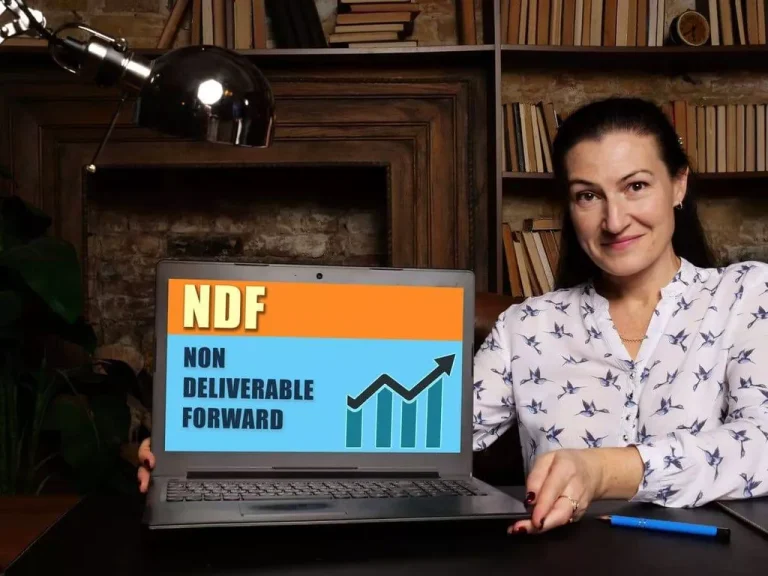Content
This ensures that even if an attacker compromises one party, they cannot gain full control over the wallet or the assets. By https://www.xcritical.com/ leveraging MPC technology, MPC wallets offer a secure and efficient way of managing digital assets. As the name suggests, an MPC wallet uses multi-party computation technology to offer enhanced security for your cryptocurrencies and other digital assets. It basically splits a wallet’s private key among multiple parties to increase privacy and reduce the risks of hacking, breaches, and losses. Fireblocks is a leading institutional-grade MPC wallet solution designed for enterprises managing significant cryptocurrency assets. Fireblocks supports multi-user workflows, enabling organizations to securely manage, transfer, and store digital assets with enhanced control.
MPC Wallets vs. Multisig Wallets

MPC wallet-as-a-service (WaaS) allows gaming companies to integrate secure wallets for managing digital collectibles and cryptocurrency rewards, enhancing player engagement and trust. MPC wallets like Zengo replace the traditional private key with two independently created mathematical “secret shares.” One share is stored on your mobile device and the other on the Zengo server. Discover the multi-chain crypto wallet with support for Bitcoin, Ethereum, Payment gateway Base, BNB, Tron and 380+ cryptoassets. Zengo is powered by institutional-grade MPC instead of a vulnerable seed phrase, keeping your assets virtually unhackable.
Protect transactions with multi-factor authentication
Non-custodial crypto wallets, which allow the user to control their mpc wallet private keys, usually have a single private key that grants access to the funds in the wallet. This means that only one private key is required to sign and verify an outgoing transaction without the need for additional authorization. In contrast, Multisig wallets involve multiple parties, each with their own private key, and a transaction can only be completed if a majority of the parties sign it. Fintech companies are integrating MPC Wallet development into their services to facilitate seamless crypto transactions, lending, and payment processing. By leveraging the robust APIs and SDKs provided by MPC wallet-as-a-service solution providers, these platforms can offer secure and scalable wallet solutions that cater to a diverse range of users.
Engine Transaction analytics added & Transaction History UI improved

The crypto wallet development cost and maintenance of MPC wallets involve significant resources due to the complex cryptographic algorithms and infrastructure requirements. This makes them costlier compared to traditional wallet solutions, especially for smaller businesses or individual users. In some cases, it may be possible to recover lost private key shares, depending on the wallet provider’s specific implementation of MPC technology. Some providers offer key recovery services or allow for the regeneration of key shares using backup information, such as a recovery phrase. However, it is crucial to follow the wallet provider’s guidelines and recommendations to minimize the risk of losing access to your assets.

Upgrade to the security of Zengo’s MPC wallet
In this blog post, we’ll explore everything you need to know about MPC wallets, including how they work, their benefits, and how to use or build one whether you’re a user or developer. By leveraging MPC technology, web3 wallets can provide a better user experience and make digital asset management more secure and efficient. This distributed approach enhances security, as no single party has access to the complete private key, eliminating single points of failure. When a transaction requires signing, the involved parties collaborate to generate the signature without reconstructing the private key, ensuring that the assets remain secure throughout the process. However, financial institutions and custodians handling large amounts of digital assets require more advanced methods to secure funds. A single key represents a point of weakness for hackers to target, so it’s a cybersecurity risk that should be mitigated.
Do your own research before investing in any crypto platform and only invest the amount you can afford to lose. Additionally, the BEST token holders get added privileges of utility and governance. If you have any questions, join 33,000+ other builders in our Discord community — or reach out to the team directly for more info on how to integrate MPC wallets into your web3 apps.
- The wallet is compatible with various blockchain networks and offers granular access controls.
- With software MPC wallets, users can easily send and receive cryptocurrencies, check their balance, and manage their portfolio through a user-friendly interface.
- This approach enhances security as no single party has access to the complete private key, eliminating single points of failure.
- These include a built-in aggregator for instant token trading and a portfolio tracker to monitor asset performance.
- Once the transaction is signed, the wallet broadcasts it to the blockchain network for validation.
- Moreover, MPC wallets are designed to be user-friendly, with intuitive interfaces that make it easy for both beginners and experienced users to manage their cryptocurrencies.
Traditional wallets rely on a single private key, which, if lost or compromised, can lead to irrevocable loss of funds. In contrast, an MPC wallet fragments the private key into multiple components, or “shards,” distributed across various devices or participants. This approach eliminates single points of failure, making it one of the most secure methods for managing digital assets. It’s a smart contract wallet that uses Multi-Party Computation technology to securely manage digital assets on the blockchain. Unlike traditional wallets, MPC wallets use advanced cryptography to ensure the private key is never exposed or stored in one location, adding an extra layer of security.
Multi-party computation (MPC) or secure MPC (SMPC) is a way for a bunch of people to work out something secret together. It keeps things private, especially on the internet, where it’s hard to keep secrets. MPC stands for secure Multi-Party Computation and is a field of cryptography born 30 years ago.
Its ability to compute functions without exposing sensitive data positions MPC as a cornerstone of modern cryptography. The user’s MPC based Wallet holds digits 0 and 1, while the remaining digits (2-9) come from four different devices. Each segment is useless in isolation, meaning that transactions can only leave the MPC wallet with the full 10-digit key. Eniblock offers a comprehensive MPC Wallet-as-a-service solution through its Web3 SDK tailored for enterprises and brands. Its all-in-one SDK solution is designed by developers with web2 expertise to streamline the transition to the decentralized web.
This flexibility makes them suitable for both personal use and collaborative environments requiring multi-party approvals. Multiparty Computation (MPC) is an advanced cryptographic technique designed to allow multiple participants to jointly compute a specific function without revealing their private inputs. It ensures convenient storage and seamless sending and receiving of cryptocurrencies. With the current boom of the crypto industry, there is also an upsurge in the concerns about crypto theft and unauthorized access. MPC Wallets can be configured with different threshold schemes, allowing for a specific number of parties to sign a transaction successfully, even if some parties are unavailable. Launched in 2019 as the first consumer-facing MPC wallet, Zengo now boasts 700,000+ global customers, multichain support, and 24/7 live in-app customer service.
Plus, there’s no single point of failure, which makes it much harder for hackers to get their hands on your crypto. Implement support for key blockchain operations, such as signing transactions, broadcasting them to the network, and retrieving account balances. Test for interoperability across multiple blockchain ecosystems, especially if supporting numerous cryptocurrencies.
Zengo’s 3FA ensures your account is always recoverable, based on your email account, 3D FaceLock (an encrypted biometric scan), and the Zengo recovery file. When it comes to setting up your MPC wallet, it’s important to choose the right one that suits your needs. Consider factors such as your level of expertise, the cryptocurrencies you want to store, and your preferred device.
MPC wallets often require robust infrastructure for secure shard distribution and communication. A failure in any part of this infrastructure, such as server outages or connectivity issues, can temporarily disrupt access or transaction processing. We curated a list of metrics to evaluate crypto platforms based on their services, user experience, security and customer support, payment gateways and charges, pricing and promotions.

0 Comment